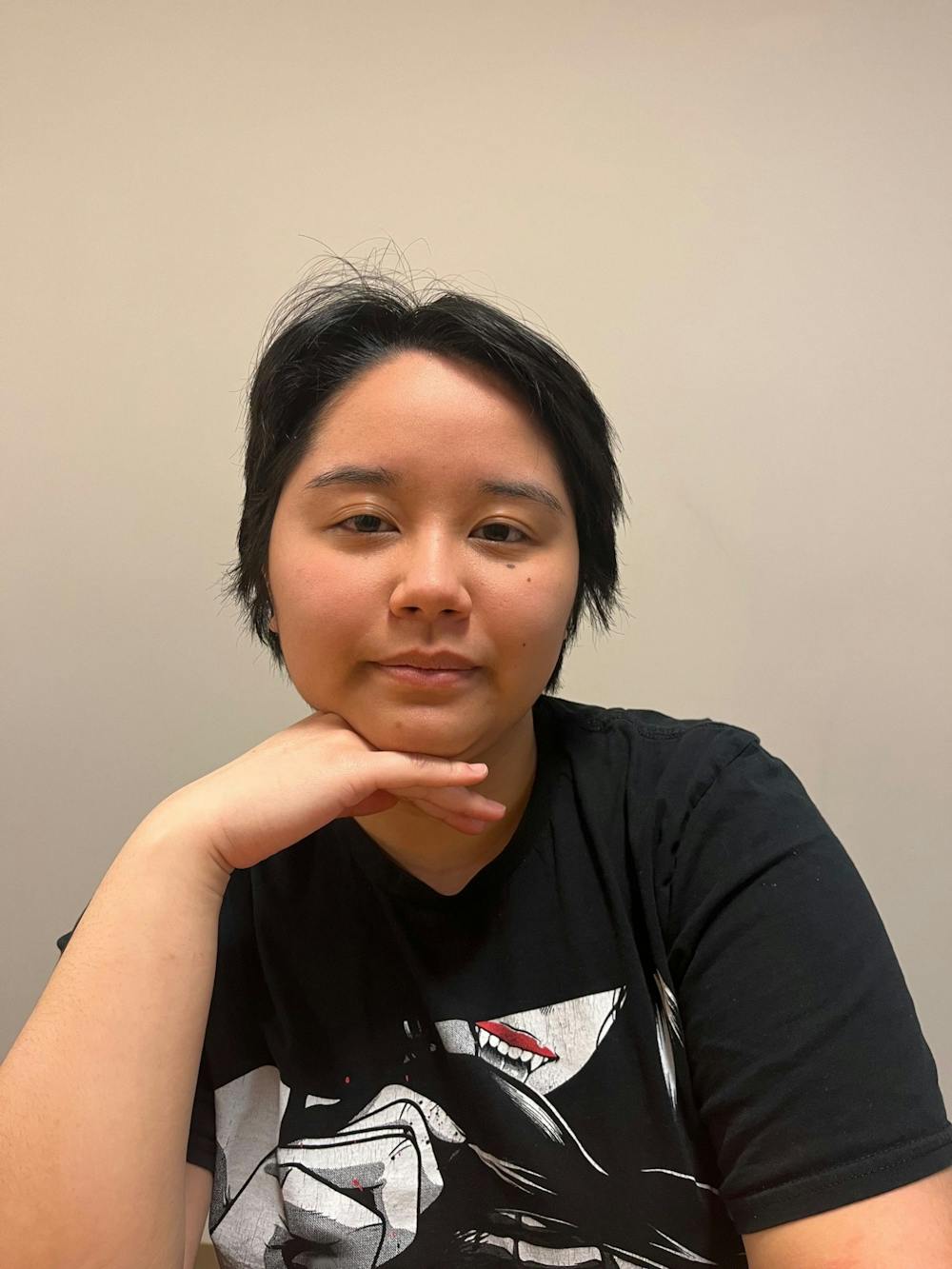Have you ever ripped a book from its shelf, or the bag it was in, and started reading right away?
Have you ever felt a hunger for words on a page and felt it grow as you get closer and closer to the backend of the book jacket?
Have you ever felt that hunger to know what lies beyond? What lies beyond the words? Beyond the page? Beyond the writer themself?
I understand that hunger well, and I direct it toward my studies.
However, I have met far too many students at American University who do not know how to control their hunger. And that hunger breeds entitlement.
During the Literature Colloquium of the fall semester, I witnessed this hunger evolve into entitlement right before my eyes. It was unnerving.
On that day, the literature department dived into “On Earth We’re Briefly Gorgeous: A Novel” by Ocean Vuong. Critics consider it fiction; however, readers cannot deny that there are autobiographical elements within the novel. It is just a question of the difference between truth and fiction, which was a focus of the three panels that day.
It is entitled to assume one can pick out the truth and the fiction in a gay Asian man’s novel that reflects aspects of his own life. Rather than take the book as it is, a piece of writing that does not have a defined genre or a defined form, I watched people try to put the words in a box, the novel in a genre, and try to figure out which events are true and which events are fabricated.
I witness this entitlement every day: people feel entitled to know my dating history, to know my trauma, to know the full extent of my family tree. Men need to know what other men have put me through, maybe in an attempt to understand me or maybe to see if I check a box. My peers doubt my intelligence and require me to list out my qualifications. White people may question my ethnicity because I do not look like what they envisioned XYZ people to be. Some of them cannot believe I’m Chinese. It is the same feeling of entitlement to know what something means in a film, why it’s present, what the thought process behind including something “unnecessary” was, why writers choose to exclude information. When non-white directors put something on the screen, white audiences have questions and they are dissatisfied with not receiving answers. They demand, and believe they are entitled to, these imaginary answers.
The people that participated in this conversation of categorization were white. This reveals a pattern. Their hunger to know what is true and false runs deep, and they are uncomfortable with non-white people not giving them answers. When white people ask other white people questions and they are not given answers, they acknowledge it as a matter of privacy. Some people are not ready to share or simply do not want to. Yet, if non-white people refuse to answer, it is seen as a slight against the person asking rather than a matter of privacy.
AU’s student body is majority white. What I think many of these students do not fully comprehend is that their entitlement to the text, their entitlement to know the ins and outs of non-white people’s lives, their entitlement to have answers and know everything, is an act of aggression.
Being vulnerable is challenging for many of us because the world has taught us that our vulnerability is something to capitalize on and be ashamed of. Our vulnerability only matters when it benefits the agendas and feelings of white students. Our emotions have to be justified, and we cannot simply feel. When we talk about the injustices done upon our bodies and communities, we must share everything for our white peers to feel even the smallest bit of sympathy.
So many white students in the classroom and outside of it want answers. It is natural to be curious, of course, but what I am talking about is not questions about culture, ethnicity or the way we celebrate life. They are questions about our truth, about our answers:
“Do you really think your writing should be in this genre? It’s more like this.”
“Did this actually happen to you?”
“Are you sure you aren’t misremembering?”
“I don’t get why this character is angry. Can’t he see that this ‘petty’ thing he is protesting is miniscule?”
This feeling of entitlement to know and to see beyond is harmful because it demands non-white people to air out all of their dirty laundry to be taken seriously. It’s even more hurtful when it goes beyond race, when people question the other intersections of your existence, such as queerness, religion and appearance. Is it so hard to accept what we present before you at face value? To just accept our word rather than interrogate us and categorize us?
It is harmful to force non-white people to expose themselves to white people, to expose themselves to white questions and white categories. However, at AU it is the norm, and a very unsettling and exhausting one.
If you, a white person, are wondering how you can remedy this or be a better person, the answer is quite simple:
Accept our truth as it is. And do not question it or categorize us.
Emma Hua is a junior in the College of Arts and Sciences.
This article was edited by Jelinda Montes, Alexis Bernstein and Abigail Pritchard. Copy editing done by Isabelle Kravis, Natasha LaChac, Sarah Clayton, Leta Lattin.





